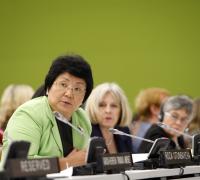Journal Article
New knowledge on determinants of aid policies
Danish gender policy shaped less than anticipated by stakeholders
Illustration © Pexels. Jens Mahnke. copyright license
Aid policies have often been explained by analysing the allocation of aid resources. Thus, poor recipients indicate that solidarity explains aid, richer recipients indicate commercial interests, politically fragile recipients indicate foreign-policy and security concerns, former colonies indicate cultural and political ties, and so forth. Recent studies have concentrated on domestic political actors and circumstances in order to clarify the policy-making process in development cooperation.
In a new article, Lars Engberg-Pedersen examines a variety of possible explanatory factors in relation to a case study of Danish gender policies in development cooperation. Challenging earlier research, the conclusion is that, while global norms, organisational concerns and the normative environment in Denmark all play important roles, Danish stakeholders have had a limited and decreasing influence over these policies.Regions
Denmark
DIIS Experts

Photo/illustration by Lynggaardhansenfoto.dk
Sustainable development and governance
Head of unit, Senior researcher
+45 3269 8695
Policy making in foreign aid
gender equality and Danish development policy
Journal of Development Studies, 1-17, 2016-01-22T01:00:00

